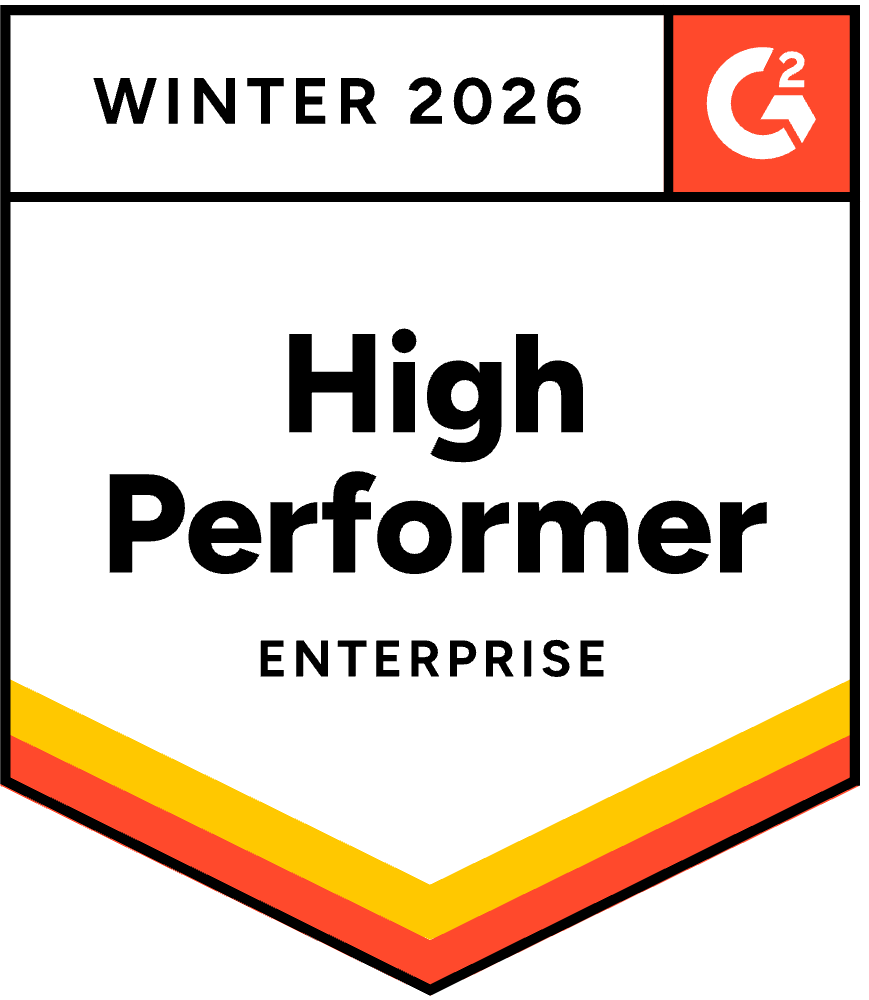

9 Pros & Cons Of Accounts Payable Outsourcing In 2026

9 Pros & Cons Of Accounts Payable Outsourcing In 2026
Explore 9 key pros and cons of accounts payable outsourcing in 2026, and learn when it makes sense for your business.


“Nearly 60% of finance leaders say their teams spend too much time on manual AP tasks instead of strategic work.” - Deloitte, 2024
As companies grow, managing accounts payable (AP) often turns into a bottleneck. Delayed payments, invoice mismatches, and compliance gaps can drain both time and resources. It’s no surprise that more organizations are considering outsourcing AP to regain efficiency and focus on growth.
But is outsourcing always the best move? Like any operational decision, it comes with trade-offs. Knowing where the real value lies and what to watch out for helps finance leaders choose the right path forward.
What is Accounts Payable Outsourcing?
Accounts payable outsourcing means hiring an external service to handle invoice processing, payments, and vendor communication. It helps businesses save time, reduce errors, and cut costs by using automation and expert processes to manage accounts payable more efficiently.
Important Aspects of Accounts Payable Outsourcing
Accounts payable outsourcing is more than just delegating tasks - it’s a strategic partnership that touches critical parts of your finance operations. Here are the key components that define a successful outsourcing relationship:
- Invoice Processing and Validation: Third-party providers take over the tedious task of processing incoming invoices, ensuring each one is accurately logged, validated, and matched with purchase orders or contracts. This begins right from invoice receipt, where digital capture ensures no document is missed or delayed.
- Payment Scheduling and Execution: Outsourced teams manage payment processing cycles, ensuring vendors are paid on time and according to contract terms, helping avoid late fees and strengthen supplier relationships.
- Vendor Management and Communication: Outsourcing partners serve as the main point of contact for vendors, resolving invoice disputes and maintaining clear, professional communication channels.
- Compliance and Risk Management: A good AP outsourcing provider ensures that all processes follow financial regulations and industry standards, reducing the risk of fraud and compliance issues. They also stay updated on regional and international tax compliance rules, helping your organization avoid costly errors.
- Reporting and Audit Support: Providers often offer dashboards and custom reporting for real-time visibility into AP performance, as well as streamlined support for internal and external audits. They also help standardize the payment process, ensuring consistent timing and accuracy across vendors.
AP Outsourcing vs. AP Automation: Which Solution is Right?
When it comes to improving efficiency in accounts payable, businesses often ask the same question: should you outsource or automate? While both aim to reduce manual work and errors, they take very different approaches.
Here’s a quick breakdown of how accounts payable outsourcing vs. AP automation compare across key factors:
AP outsourcing vs. AP automation is not always an either-or decision. Some businesses start with outsourcing to relieve overworked teams, then move to automation for better visibility and scalability.
With Spendflo, you don’t have to choose. The platform combines the best of both worlds AI-driven automation that simplifies procurement and managed procurement services that take care of the heavy lifting. You get faster processing, better control, and guaranteed savings, all in one place.
Why and When to Outsource Accounts Payable
Outsourcing accounts payable can help companies reduce costs, improve accuracy, and focus on core operations. But it's not always the right fit for every business. Knowing when to outsource depends on your company's size, complexity, and internal capacity. For many, the right timing is when internal teams become overwhelmed, processes are error-prone, or scalability is needed.
Here’s when outsourcing AP makes the most sense:
Signs It’s Time to Consider Outsourcing
If your team constantly struggles with delayed payments, high error rates, or growing invoice volumes, outsourcing may be a smart move. Other red flags include limited visibility into AP data, compliance risks, and over-reliance on manual processes.
Business Scenarios That Benefit Most
Rapidly scaling businesses, companies with distributed teams, or those going through mergers and acquisitions benefit greatly from outsourcing AP. These scenarios demand quick adaptation, which external AP experts can handle with minimal disruption.
Cost vs. Control Trade-Offs
Outsourcing typically cuts operational costs, but you may sacrifice some day-to-day control. However, leading providers offer transparent workflows and dashboards that allow you to retain oversight while offloading the execution.
How Outsourcing Affects Compliance and Efficiency
Third-party AP providers bring in-depth knowledge of regulatory standards and automation tools. This ensures compliance with tax laws and financial regulations, while also improving process efficiency and reducing fraud risk.
Pros & Cons of Accounts Payable Outsourcing
Outsourcing accounts payable can bring efficiency and savings, but it’s not without challenges. Below is a breakdown of nine key pros and cons across nine different contexts to help you make a well-informed decision for your business.
1. Operational Efficiency
As businesses grow, managing AP in-house can become resource-intensive and inefficient. Outsourcing promises faster, leaner operations - but it’s important to weigh that against the trade-off in control.
Pro
Cost Savings & Efficiency: Outsourcing helps companies reduce overhead costs related to salaries, training, software, and infrastructure. Specialized providers can process invoices more efficiently and at scale, making it a cost-effective option for both growing businesses and established enterprises.
Con
Less Control Over Daily Operations: When you outsource, you give up some control over how tasks are executed. This can create delays or misalignment, especially when immediate changes or exceptions are needed in the payment cycle.
2. Accuracy & Reliability
Inaccurate invoice handling can lead to payment errors, compliance issues, and vendor dissatisfaction. Outsourcing aims to eliminate these risks through automation - but it also brings data exposure concerns.
Pro
Improved Accuracy: Outsourced teams use automation and standardized workflows to reduce human errors in data entry, invoice matching, and approvals. This ensures better financial reporting and minimizes costly mistakes that can impact vendor trust and compliance.
Con
Security & Compliance Risks: Outsourcing financial operations involves sharing sensitive data. If your partner lacks strong security protocols or regulatory awareness, you risk data breaches, fraud, or non-compliance with laws like GDPR or SOX.
3. Business Agility
Scaling AP processes to match business growth isn't always easy internally. Outsourcing offers flexibility, but only if integration doesn’t slow you down.
Pro
Scalability: As your business grows, so do your AP needs. Outsourcing makes it easy to scale operations without the burden of hiring, training, or restructuring internal teams. Providers can handle fluctuations in volume with ease thanks to AP automation and standardized workflows.
Con
Integration Challenges: Integrating your provider’s systems with your internal ERP or accounting tools can be time-consuming. Poor integration may lead to delays, data silos, or extra manual effort - negating some of the outsourcing benefits.
4. Speed & Timeliness
Timely payments are essential for maintaining cash flow and vendor trust. An outsourced AP function may accelerate cycles, yet weaken the personal touch with vendors.
Pro
Faster Processing Times: With automation and dedicated staff, outsourcing reduces invoice processing time. This helps you avoid late fees, capture early payment discounts, and maintain stronger cash flow control.
Con
Vendor Relationship Gaps: Outsourced teams may not offer the same level of personal engagement your vendors are used to. Miscommunication or delays in dispute resolution can strain vendor relationships and affect future vendor negotiations.
5. Strategic Focus
Finance teams often spend too much time on low-value, manual tasks. Outsourcing creates space for strategic thinking, but only if the vendor’s performance doesn’t introduce new risks.
Pro
Focus on Strategic Finance Work: Freeing your internal team from day-to-day AP tasks lets them focus on strategic finance functions like forecasting, analytics, and budgeting. This shift adds more value to business planning and resource management.
Con
Dependency on Vendor Performance: If your outsourcing partner underperforms or fails to meet SLAs, your AP process could be disrupted. A lack of contingency planning can leave your team scrambling during service interruptions.
6. Access to Talent
Specialized AP knowledge isn’t always available in-house, especially in smaller teams. Outsourcing brings in expertise - but onboarding that talent takes time and effort.
Pro
Access to AP Expertise: Outsourcing gives you access to trained AP professionals with specialized knowledge in compliance, tax regulations, and global payment systems - something that’s often hard to build in-house.
Con
Onboarding & Transition Complexity: The shift to an outsourced model involves mapping processes, migrating data, and setting up integrations. This transition can be disruptive if not carefully managed with clear timelines and communication.
7. Regulatory Confidence
Audit season and compliance updates can overwhelm internal teams. Outsourcing strengthens regulatory readiness, but may come at the cost of flexibility in workflow.
Pro
Better Compliance & Audit Readiness: Outsourcing firms are well-versed in audit requirements and maintain clear documentation trails. This helps streamline audits and ensures adherence to evolving financial and tax regulations.
Con
Limited Customization: Some providers offer rigid workflows that may not align with your company’s unique AP processes. Customizing workflows or exception handling might incur extra costs or be outright limited.
8. Decision-Making Support
Modern finance leaders rely on real-time insights to make informed decisions. While outsourcing can enhance visibility, hidden costs can obscure the true value delivered.
Pro
Advanced Reporting & Visibility: Leading providers offer real-time dashboards and detailed reporting tools that help you track performance metrics, identify bottlenecks, and manage cash flow more proactively.
Con
Hidden Costs: Some AP outsourcing agreements may include hidden fees for custom reports, rush payments, or SLA breaches. These unexpected costs can reduce the overall ROI of your outsourcing decision.
9. Global Coverage
If you operate across time zones, continuous AP operations are a big win. That said, global teams can also introduce communication friction and cultural misalignment.
Pro
Around-the-Clock Processing: Global outsourcing teams allow invoice processing to continue even after your internal team logs off. This accelerates turnaround times and supports international vendor operations.
Con
Communication or Cultural Barriers: Different time zones, languages, or communication styles may cause misunderstandings or delays. Without strong governance and communication protocols, this can impact operational efficiency.
How Much Does Accounts Payable Outsourcing Cost?
Accounts payable outsourcing costs vary depending on how services are priced, the volume of invoices, and the level of support included. Understanding these cost structures and fee transparency helps you choose a partner that fits your business goals and budget.
In most cases, AP outsourcing pricing follows one of these models:
Per-Invoice Model
This structure charges a cost per document processed, often ranging from a few cents to a few dollars per invoice. It’s ideal for companies with fluctuating invoice volumes since you only pay for what you use. However, fees can add up quickly during peak months.
Full-Time Equivalent (FTE) Model
In this model, you pay for a dedicated offshore team member who manages your accounts payable end-to-end. It offers predictable monthly costs but may not scale efficiently if invoice volumes change.
Potential Add-On Charges
Outsourcing providers may charge extra for rush payments, custom reports, ERP integration, or managing international and multi-currency payments. These potential add-on charges can increase total costs, so it’s important to ask about them upfront for full transparency.
By outsourcing, businesses can transform costs from hourly to fixed, turning unpredictable expenses into clear, budgeted monthly payments. This shift helps finance teams plan better and focus on strategy instead of manual processing.
Ultimately, the right pricing model depends on your company’s invoice volume, internal bandwidth, and compliance needs.
With Spendflo, you get the benefits of both worlds automation that reduces manual AP tasks and managed procurement services that keep costs predictable, transparent, and optimized for savings.
Best Practices for Accounts Payable Outsourcing
Successful accounts payable outsourcing relies on clear communication, defined processes, and ongoing performance tracking. When implemented correctly, it can transform AP from a back-office task into a strategic advantage. Below are the key best practices to follow:
Set Clear KPIs and Expectations
Before outsourcing, establish measurable goals such as invoice processing time, error rates, and payment cycle timelines. These KPIs help both parties stay aligned and ensure accountability throughout the engagement.
Choose the Right Outsourcing Partner
Look for a partner with industry experience, strong technology capabilities, and a proven track record in managing approval workflows efficiently. Evaluate their responsiveness, data handling practices, and integration options to ensure they can support your existing workflows. ERP integration should be seamless to maintain end-to-end visibility and data accuracy.
Ensure Data Security and Compliance
Make sure your partner follows global data protection regulations like GDPR and SOC 2. This is especially critical when handling sensitive financial information across borders or in regulated industries.
Continuously Monitor and Optimize
Treat outsourcing as a dynamic relationship. Use regular reporting, feedback loops, and performance reviews to refine processes, resolve bottlenecks, and identify cost-saving opportunities over time.
AP Outsourcing KPIs & Vetting Requirements
When evaluating vendors, it’s important to know how to choose an AP outsourcing provider that delivers measurable results, not just lower costs. The best providers clearly define expectations through metrics and transparency. Below are the key KPIs and vetting criteria to consider.
Robust Service-Level Agreements (SLAs)
Strong SLAs set clear standards for accuracy, timeliness, and communication. Look for providers that guarantee high invoice processing accuracy (typically above 99%) and clearly outline average days to pay targets. A reliable partner should share real-time performance reports so you can monitor results easily.
Technology Stack
Modern AP outsourcing should use advanced automation tools and AI-driven workflows to process invoices faster and reduce human error. Ask whether the provider integrates with your existing ERP or accounting system for seamless visibility and approval tracking.
Security Certifications
Since vendors will handle sensitive financial data, confirm that they maintain compliance with global standards like SOC 2 Type II and GDPR. These certifications ensure your data is processed, stored, and accessed securely at all times.
Pricing Transparency
Reliable providers offer clear pricing models without hidden fees. Ensure they explain all possible costs such as per-invoice rates, implementation fees, or add-ons before signing the contract. Transparent pricing protects your budget and builds trust.
How Spendflo Helps with Accounts Payable Outsourcing
Manual invoice management doesn’t just slow down finance teams, it costs companies thousands each year in delays, missed payments, and duplicate invoices. That’s why fast-growing businesses are turning to smarter, automated procurement and AP solutions.
A SaaS company that reduced its monthly processing time by 40% after switching to Spendflo. With centralized visibility, automated approval workflows, and AI-powered reporting, their finance team closed books faster and avoided late payment penalties entirely.
If your team still spends hours chasing invoices or reconciling payments, it’s time to rethink your AP operations. Spendflo combines automation and expert support to help you manage accounts payable with accuracy, speed, and complete control.
Ready to simplify your AP process and cut costs? Book a demo with Spendflo and see how leading companies are transforming their finance operations today.
Frequently Asked Questions on Accounts Payable Outsourcing
What are the benefits of outsourcing accounts payable?
Outsourcing accounts payable offers numerous advantages, including reduced manual workload, improved invoice accuracy, faster processing, and greater compliance with financial regulations. It frees up internal teams to focus on higher-value finance functions like planning, reporting, and vendor strategy. Additionally, it can unlock cost savings through automation, fewer errors, and streamlined payment cycles.
How do you choose the right AP outsourcing provider?
Choosing the right provider involves more than cost comparison. Look for providers with proven industry experience, automation capabilities, and secure data handling. Evaluate their ability to integrate with your current ERP systems and check for strong client references. Also, ensure they provide real-time visibility, detailed SLAs, and flexibility to scale with your operations.
What risks should be considered before outsourcing AP?
The main risks include data security breaches, misaligned workflows, and loss of operational control. Poor communication with vendors or delays in issue resolution can also affect business relationships. These risks can be mitigated by setting clear KPIs, ensuring transparent processes, and regularly auditing the provider’s performance and security measures.
Is AP outsourcing suitable for small businesses?
Yes. In fact, it’s especially beneficial for small to mid-sized businesses without dedicated AP teams. Outsourcing allows them to access enterprise-level tools and expertise at a lower cost. It helps streamline operations, reduce overhead, and improve cash flow management without needing to scale internal resources.
How can you measure the ROI of AP outsourcing?
Measure ROI by comparing pre- and post-outsourcing metrics. Key indicators include time saved per invoice, error rate reduction, early payment discount capture, and decrease in headcount or software costs. Also consider qualitative benefits like improved audit readiness and vendor satisfaction.
How long does it take to transition to an outsourced AP model?
Transition time can vary, but most businesses can onboard within 4 to 8 weeks. This includes mapping workflows, integrating systems, training stakeholders, and testing processes. A well-defined implementation plan is key to ensuring minimal disruption and a smooth go-live.










.png)




.png)
.png)















